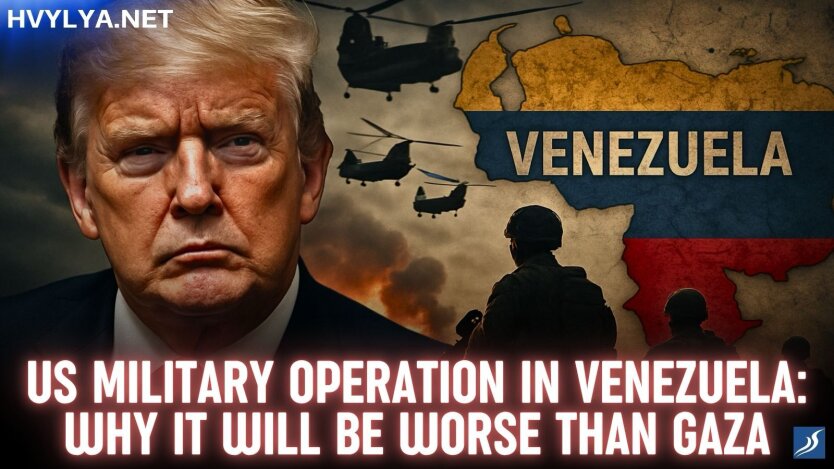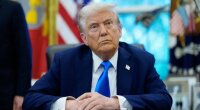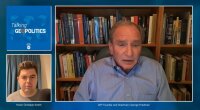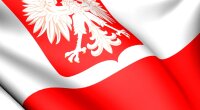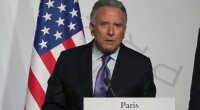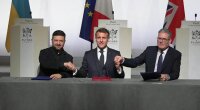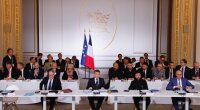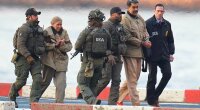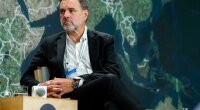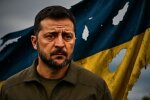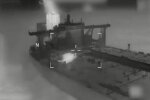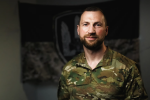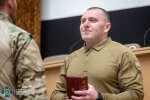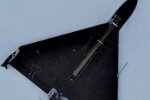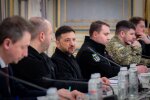Yuriy Romanenko and international relations expert Vitaly Kulik discussed the Venezuelan crisis and threats of military intervention by the United States. Despite the apparent remoteness of the topic, the situation around Venezuela is directly related to global geopolitics and the Ukrainian context.
Venezuela: A Country of Eternal Crisis Where Cartels, Not Presidents, Rule
Venezuela is a country of paradoxes. Possessing the world's largest proven oil reserves of 303.2 billion barrels (first place in the world), ranking eighth in gas reserves, having enormous deposits of gold (about 7,000 tons), copper, silver, bauxite and rare earth metals, the country is in a state of permanent crisis.
"Venezuela is paradise," says international relations expert Vitaly Kulik. "It's paradise. But the population has never managed to build paradise there."
Oil production fell from 3-4 million barrels per day at its peak to 337 thousand in 2020. Now it's about 892 thousand barrels. The average salary is $90 with a consumer basket of $500. The government is forced to introduce food ration cards.
"The economy is dead," Kulik summarizes. "A very similar situation to Syria. There are only drugs, drug production and war. In Venezuela, there's the service sector and everything connected with cartels. Everything else doesn't work."
Unique Power System: The Cartel-State
The main feature of Venezuela is not a classic authoritarian dictatorship. "Venezuela is such a conglomerate of various influence groups," Kulik explains. "A significant mass of power is not in state institutions, but in informal institutions. These are cartels. These are drug cartels, organized criminal groups or groups of economic interests of an informal type."
Real power is in the hands of shadow clans. "There may be a governor, there may be a chief of police, there may be a party functionary, but power will be in the hands of some local Don Corleone," the expert continues. "He will decide who will be the head of the party cell, who will be a policeman, what positions his clan will occupy in the Armed Forces."
These informal structures demonstrate situational loyalty: "Here we fight with the authorities over the redistribution of drug trafficking, and here we cooperate with the authorities and squeeze the opposition. Here we supported the opposition at some point, there we ensured their mobilization on the streets, and here our paramilitary forces disperse demonstrators the next day."
Diosdado Cabello: The Man Ruling from the Shadows
The key figure in the Venezuelan system is not Maduro, but Diosdado Cabello — former head of the National Assembly and Constitutional Court, wanted by the FBI.
"For whose head $50 million was offered in January 2025," Kulik reports. "Journalists call him the leader of the Los Soles drug cartel. This is the largest, one of the largest cartels in Venezuela. He's called either the second person or the first person of shadow power there, that the power of this cartel is greater than Maduro's."
All power verticals converge on Cabello: "He brings together the main flows of military, security forces, drug cartels, financial flows, illegal exports. He determines the power vertical. All relationships converge on him. All personnel decisions go through him."
Cabello is accused of preparing an assassination attempt on current US Secretary of State Marco Rubio. "He's involved in the case of preparing Rubio's murder," says Kulik. The motive is obvious: "Rubio at that time, as congressman and senator, was one of the initiators of pressure on cartels and conducting operations against, particularly against Venezuelan drug cartels. He was the face of this operation."
Military on Cartel Payroll
Why doesn't the army side with the opposition? The answer is simple: officers receive money from cartels.
"You'll get your share from all the gray business," Kulik explains the system. "You'll receive in addition to your official salary, as a serviceman, as an officer, you'll receive an envelope. And not in local currency, in bolivars, you receive in dollars. And this is a good sum, this is survival."
Chavez created the Bolivarian Military University, which trains ideologically loyal officers. A key figure is General Felix Guzman, rector of the university and chief ideologist of Chavist socialism. "This person is a system-forming factor for Chavist socialism and building a vertical of control through the army and its connection with clans."
The result: "When a Venezuelan army officer or Venezuelan security official thinks about whether to join the opposition and not defend this regime, he chooses to defend this regime because it feeds him. The opposition could never offer part of the officer corps more money. The Americans couldn't corrupt them, that is, they couldn't offer more than the cartels offered."
Cuban Occupation
Another shocking fact: a significant part of the command staff of Venezuelan security structures are Cubans.
"Even Venezuelan army officers and police joked about their generals, calling them brigadier generals of Cuban occupation forces," Kulik recounts from a Ukrainian acquaintance who lived in Venezuela. "And this is pure truth, because a significant part of the officer corps of security structures are Cubans who are seconded by Cuba to the military command of Venezuelan forces."
We're not talking about dozens or hundreds: "These are tens of thousands infiltrated into Venezuela's military and security structure. They moved 10-15 years ago, they've already settled there, but they're connected to Cuban authorities."
Cubans work as external control, allowing Chavez, and then Maduro, to avoid dependence on local clans: "They work as external control, which allows balancing between certain interest groups."
Failure of American Regime Change Strategy
In 2019, the US attempted regime change by recognizing parliament speaker Juan Guaido as "interim president." He was given frozen Venezuelan assets, some embassies defected to his side. The Western press wrote about inevitable popular uprising.
What happened? "Actually nothing like that happened," Kulik states. "The opposition showed no unity. They split immediately. They quarreled over money in frozen accounts. There was simply gigantic corruption related to mastering financing. All money infusions into the opposition on the ground in Venezuela were eaten up, disappeared, never reaching actual mobilization."
Democratization grants were stolen: "All democratization grants during Juan Guaido were actually stolen. That's why he was quietly dumped." Money was spent on "conferences on gender politics, on green transition."
Statements recognizing Guaido simply disappeared from government websites: "The statement disappeared from the site, they simply forgot about the guy. He was there and then wasn't. A phenomenon."
Why Military Operation Is Impossible
Trump threatens military intervention, conducts exercises in Puerto Rico, concentrates military groups. But experts are skeptical.
"Five roads lead from the coast to Caracas," Kulik explains the geography of the problem. "Suppressed air defense, destroyed aviation. The second stage must be ground-based. Five roads are easy to block. Introducing combat operations in a city of 4 million people is more than in Gaza. Americans will get nothing good from this."
The only option is a palace coup. But for this, one needs to negotiate with cartels: "One must negotiate with these clans, with these cartels, or undermine their influence and role. At the moment, the opposition cannot do anything in any format to undermine the positions of these clans."
Moreover, the opposition itself has become a client of cartels: "Even part of Machado's entourage is already accused of having relations with one cartel or another that has dual loyalty. Here we're with Maduro, and here we're with the opposition."
Role of External Players: China, Russia, Iran
China is the main creditor of Maduro's regime, controlling oil, gas and gold mining projects. But Beijing is not interested in war: "China understands the specifics. It restrained appetites for purchasing Russian weapons, Iran's presence."
Russia is trying to get into the conflict. In 2018, it sent a Wagner group: "Actually there were about 20 Wagner fighters, not 300-400. The Russians sent there just one plane with weapons and 30 fighters once."
Now Moscow is promising again: "We'll supply Oreshnik, deploy nuclear weapons, send troops." But real capabilities are limited: "It's far. Secondly, why go there ourselves if there's Cuba, which can provide military support?"
Iran created a training center for reconnaissance groups in Venezuela: "Many special operations against the United States, Iranians base in Venezuela. Not in Cuba. In Venezuela." Iranian drones appeared: "Geran appeared, Shahed appeared of certain types."
Maduro vs Chavez: Bus Driver vs Military Leader
Vitaly Kulik vividly describes the difference between Chavez and Maduro, whom he saw personally:
"Chavez was the embodiment of an Inca warrior, as a leader, a military leader. As they depicted such in legends about an Indian warrior-chief. He was vivid, he was real, charisma emanated from him. And Evo Morales was such a cacique, such a priest with him. Maduro is a bus driver. And that says it all. No charisma, whatever camouflage he wears, whatever orders he gives and whatever revolutionary songs he sings, no Bolivarian revolution emanated from him."
Prospects: Perpetuum Mobile of Crisis
Experts agree: Venezuela is doomed to endless political carnival.
"Since 2018, constant political turbulence," Kulik lists. "Every quarter mass mobilization, protests. Every quarter — strikes. Every quarter people going out into the streets, shootings. Every quarter some loud murder or kidnapping. Every quarter some event that just shakes poor Venezuela."
The result: "Actually Venezuela is even quite difficult to reboot as long as this dysfunctional deinstitutionalized power exists, which is in a gray zone. You can even replace Maduro, you can put opposition, but as long as power is with cartels and these influence groups, you can't do anything with the country."
Venezuela has become an arena of confrontation between the US, China and Russia, but none of the parties can control the situation: "No one, neither the authorities, nor the opposition, nor an external factor is capable of ensuring control of this territory. One can overthrow Maduro alone, but no one can completely establish control over the country."
